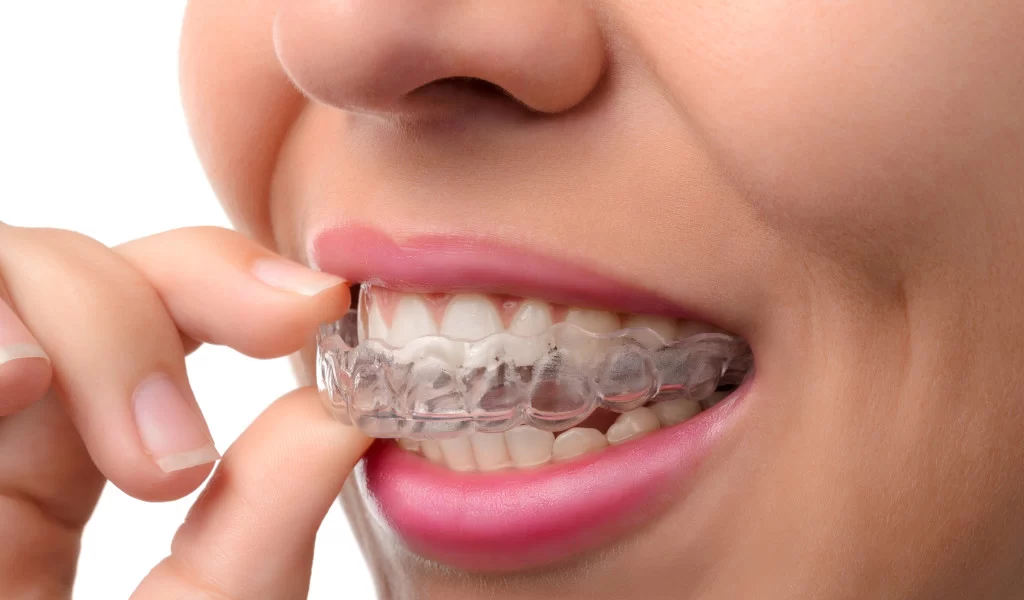
How to Prevent Teeth Grinding During Sleep
- Understanding Teeth Grinding (Bruxism)
- Why Teeth Grinding Happens During Sleep
- How to Prevent Teeth Grinding at Night
- Natural Remedies for Bruxism
- Professional Treatments for Teeth Grinding
- Recommended Products to Prevent Teeth Grinding
1. Understanding Teeth Grinding (Bruxism)
Teeth grinding, also known as bruxism, is a common issue that occurs when a person clenches or grinds their teeth, often during sleep. It can lead to a range of problems, including tooth wear, jaw pain, and headaches. While it’s natural to occasionally grind your teeth due to stress or anxiety, persistent grinding can cause serious damage if left untreated.
For example, one of my patients, Mark, came to me complaining of chronic headaches and jaw pain. After some investigation, I discovered that he had been grinding his teeth at night for years. His teeth had become worn down, and his jaw muscles were severely tense. Mark’s case is not unusual—bruxism is often silent, and people may not realize they are grinding their teeth until they experience pain or tooth sensitivity.
2. Why Teeth Grinding Happens During Sleep
There are several reasons why people grind their teeth during sleep, with the most common factors being stress and anxiety. When you're stressed, your body may subconsciously tense up, and that includes your jaw muscles. In some cases, bruxism may be linked to an underlying sleep disorder such as sleep apnea, which causes interruptions in breathing while asleep. Other contributing factors include an abnormal bite, crooked teeth, or certain medications that cause muscle tension.
One key thing to note is that bruxism often occurs without you realizing it. Many people only become aware of the problem when their dentist points out signs of grinding, such as worn-down tooth enamel or tenderness in the jaw muscles.
3. How to Prevent Teeth Grinding at Night
Preventing teeth grinding during sleep can be challenging, but there are several strategies that can help reduce or stop this harmful habit:
- Manage Stress: Since stress is a primary trigger for teeth grinding, practicing stress-relieving activities like meditation, deep breathing exercises, or yoga before bed can help reduce nighttime bruxism.
- Establish a Relaxing Bedtime Routine: Creating a calm environment before sleep can signal your body that it’s time to relax. Consider activities like reading, taking a warm bath, or listening to soothing music.
- Avoid Stimulants: Avoid consuming caffeine or alcohol before bed, as these substances can disrupt your sleep and increase muscle tension, leading to more grinding.
These simple lifestyle changes can make a significant difference in reducing the frequency and severity of teeth grinding, especially if the cause is linked to stress or poor sleep habits.
4. Natural Remedies for Bruxism
In addition to lifestyle changes, several natural remedies can help alleviate the symptoms of bruxism and reduce teeth grinding during sleep:
- Warm Compress: Applying a warm compress to your jaw muscles before bed can help relax the muscles and reduce tension.
- Magnesium Supplements: Some studies suggest that magnesium supplements can help relax muscles and may reduce the frequency of teeth grinding.
- Herbal Remedies: Herbal teas such as chamomile or valerian root can have calming effects and help reduce anxiety and muscle tension before sleep.
These natural solutions are not a cure for bruxism, but they can be a helpful addition to your nightly routine to reduce grinding and improve sleep quality.
5. Professional Treatments for Teeth Grinding
If lifestyle changes and natural remedies do not fully resolve your teeth grinding, your dentist may recommend professional treatments to protect your teeth and alleviate pain:
- Custom Mouthguards: A custom-fitted mouthguard worn during sleep is one of the most effective ways to prevent teeth grinding. It provides a cushion between your upper and lower teeth, protecting them from damage and reducing strain on the jaw muscles.
- Botox Injections: In some cases, Botox can be injected into the jaw muscles to relax them and reduce the effects of grinding. This treatment is typically reserved for severe cases of bruxism.
- Dental Correction: If your bruxism is caused by an abnormal bite, your dentist may recommend corrective dental procedures to align your teeth properly.
Professional treatments can be highly effective in managing teeth grinding, especially if the problem is severe or causing significant damage to your teeth and jaw. Always consult with your dentist for personalized recommendations.
6. Recommended Products to Prevent Teeth Grinding
If you’re looking for products that can help prevent teeth grinding during sleep, there are several options available that can help protect your teeth and reduce bruxism:
- Custom Night Guards: A well-fitting night guard made by your dentist can provide the best protection against teeth grinding.
- Over-the-Counter Mouthguards: While not as personalized as custom-made guards, over-the-counter options can still offer some relief for mild grinding.
- Jaw Relaxation Devices: Some devices are designed to help relax the jaw muscles before bedtime, reducing the tendency to grind your teeth.
For more information on these products and to find the best solution for your teeth grinding issues, visit Dentistry Toothtruth to explore a range of dentist-approved options that can help protect your oral health.







 All Smile Dental Center3.0 (31 review)
All Smile Dental Center3.0 (31 review) Love Dental Arts5.0 (66 review)
Love Dental Arts5.0 (66 review) Dr. Michelle Green, Green Family Dental5.0 (32 review)
Dr. Michelle Green, Green Family Dental5.0 (32 review) Beth Weinstein, DDS5.0 (83 review)
Beth Weinstein, DDS5.0 (83 review) Carol Stream and Elgin Dental Associates4.0 (415 review)
Carol Stream and Elgin Dental Associates4.0 (415 review) Community Medical & Dental Center3.0 (37 review)
Community Medical & Dental Center3.0 (37 review) The Importance of Oral Health Education During Pregnancy for a Healthy Pregnancy
The Importance of Oral Health Education During Pregnancy for a Healthy Pregnancy Best Tips for Brushing Your Teeth Properly for Healthy Gums: Essential Techniques for Oral Health
Best Tips for Brushing Your Teeth Properly for Healthy Gums: Essential Techniques for Oral Health Why Skipping Dental Checkups Can Lead to Bigger Oral Health Problems
Why Skipping Dental Checkups Can Lead to Bigger Oral Health Problems Advantages of Porcelain Dental Restorations
Advantages of Porcelain Dental Restorations How Can Diabetes Cause Tooth and Gum Problems? Preventing and Managing Oral Health Issues
How Can Diabetes Cause Tooth and Gum Problems? Preventing and Managing Oral Health Issues Healthy Habits for Promoting Good Oral Health and Hygiene: Tips for a Healthy Smile
Healthy Habits for Promoting Good Oral Health and Hygiene: Tips for a Healthy Smile